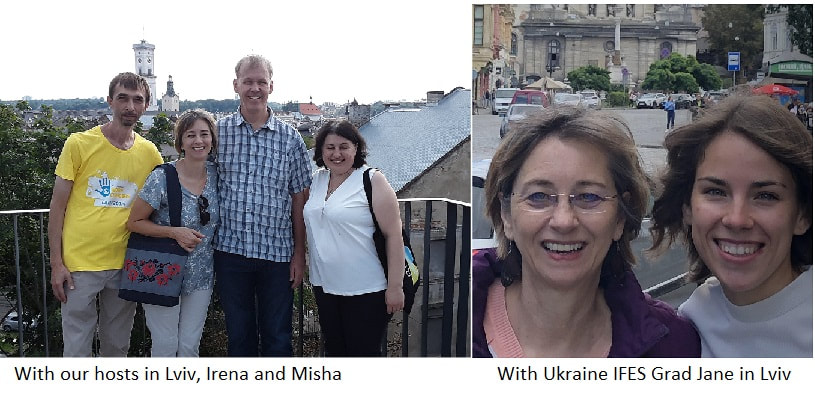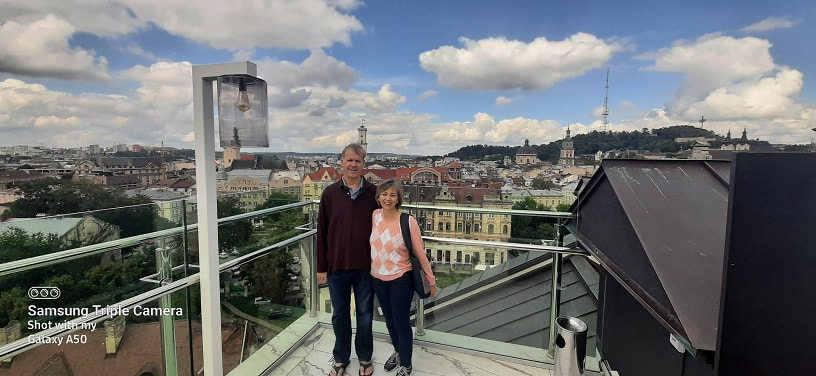|
Greetings to you, friends. This week I (Lisa) taught the last class session for a small group of gifted and dedicated leaders in Nepal and India. The vision that excites me as I give myself to groups like this is that of growing national, Nepali professors for the seminaries and Bible colleges of Nepal. Currently there are very few Nepali Christians with Ph.D’s, so almost all theological education is done by foreigners. This is in contrast to many seminaries in the Philippines, Singapore, Taiwan, India, and other Asian countries, where Westerners today play only small supporting roles and faculties are mostly Asian. The church in Nepal is young and poor, but the vision of a more locally grown class of theological educators is a worthy one. So, twice now I have taught for the small set of students in Nepal who are doing an advanced degree beyond their M.Div. degree, an M.Th. in preparation for Ph.D. work. It was a challenge to teach this course from three different locations (Chiang Mai, Thailand, the Carpathian mountains of Ukraine, and L’viv), with unstable internet, time zones to juggle, and cultural differences to keep in mind. But those minor challenges pale in comparison to the challenges they overcame. One student gave birth the week before class began. One student had severe Covid and lived in her very spare church building for three weeks to quarantine herself away from her family. I can see a corrugated tin roof in one student’s home, and I worry for her family in the cold months ahead. The student who joined us from India lost good friends to Covid and other illnesses during our term. The church in Nepal and India has endured a season of great suffering. In the midst of all that, we managed to laugh together often as we worked on the craft of preaching. I learned so much from these students! Not everything I taught was a fit. For example, I talked in one session about how to handle criticism of your sermon from your congregation only to learn that that essentially never happens in Nepal. (I’ll admit to being a bit jealous.) Fascinatingly, I learned that there is a sect of Hinduism that believes in Jesus’ life on earth and death in so much agreement with the church that they hold a joint Good Friday service. In both countries, the church wrestles a great deal with how much to participate in their surrounding culture. For example, most churches in my student’s region of India do not participate in Diwali, the festival of light, but in other regions some churches do. In Nepal, they do participate in the tradition of putting Mehendi, or henna crimson powder on the bride on her wedding day. But more than the finer points of inculturation, I learned from these students’ passionate dedication to Jesus and his church. They are selfless servants, gracious and loving leaders, and highly committed disciples. Their coordinated “Thank you, teacher” screens at our break during the final class session was a sweet moment. I am so grateful for the chance to teach and to learn from these faithful students. This class ends as another one has begun. Rich and I are sharing the teaching of a course in the Gospel of Mark at St. Paul’s Theological College in Malaysia. That course is larger, 27 students, and so challenging in a different way, as we struggle to learn names and facilitate discussion within the limits of Zoom for a bigger group. In the first hour I teach a theme, such as Mark’s concealing and revealing of the identity of Jesus, or the theme of honor and shame throughout the book. For the second hour, Rich leads an inductive Bible study in a passage—something he has a bit of experience doing! This is actually my first time teaching the gospel of Mark in several years, and it is reminding me why we love this gospel so much, and its main character.
I will also teach one class for Fuller, starting late September, and it looks to be a delightfully diverse group, as is so often one of the joys of Fuller teaching. Rich is teaching a course in fundraising for NGO leaders and pastors in Sri Lanka (and elsewhere) through Development Associates International, https://daintl.org and continuing to teach and train in India and elsewhere. We continue to enjoy our time in Lviv, and will be sorry to leave it. We got a tour of “the dark side” of the city last weekend, when friends took us to the Citadel, a hill outside the city which became the site for the murder of thousands of Jews during the holocaust, and then for the murder of political dissidents during Soviet occupation. We were grateful to learn that history in the midst of our appreciation of the “bright side—” the warmth of the people, the beauty of the downtown architecture, the abundant chocolate, etc. We continue to cheer on the nation as it celebrated its 30th anniversary last month and as it navigates ongoing challenges on its borders. On the 19th of this month, we will head to Moldova, at the invitation of the IFES student movement there. We will likely stay there for about six weeks, then return to Kiev, Ukraine for a conference in November, and then return to the US for several weeks. Rich will add a side trip to Armenia in October. I am a little tired of the rootlessness of our lives these days—Rich thrives on it and we often need to navigate our differing tolerance levels and appetites for change. And for dresser drawers. But we both sense the sustaining gifts of the Lord in our midst. We are grateful to each of you for your prayers and for the gifts that make our ministry possible. As always, we love to get replies to these emails, with updates and ways we can be praying for you.
0 Comments
|
Archives
April 2024
AuthorRich and Lisa Lamb Categories |



 RSS Feed
RSS Feed